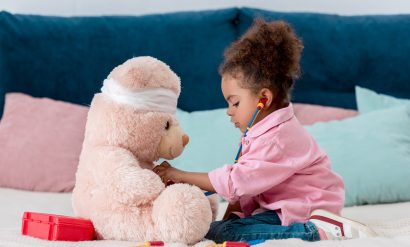
Centring children’s lived experiences in understanding the importance of play in hospitals
We wanted to understand what playing in hospital is like from the perspectives and experiences of young children themselves.
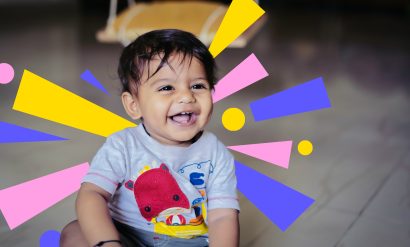
Using play to help the world’s children to heal, learn and thrive: David Whitebread Memorial Lecture 2024
This is a recording of the 2024 David Whitebread memorial lecture, on the first International Day of Play. The lecture was given by Dr Erum Mariam, Executive Director of BRAC Institute of Educational Development, and was followed by a panel discussion with global experts.
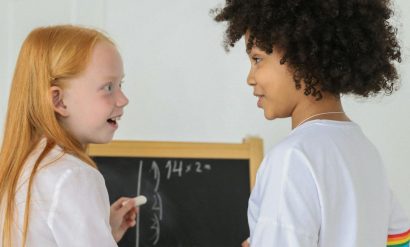
A playful, evidence-informed approach to maths education
How PEDAL research can help a government committed to improving maths outcomes to think more creatively about how to achieve this goal.
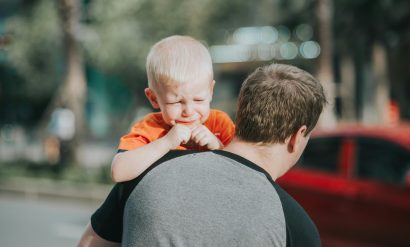
Listening to children with empathy – the ethical case
In this piece, Soizic le Courtois argues that advice given to parents should draw on scientific evidence about children's subjective wellbeing, children's perspectives and the contribution of any practice to children's development and outcomes. We should also be attuned to our empathetic responses to children, which can give us clues about the "right" thing to do.
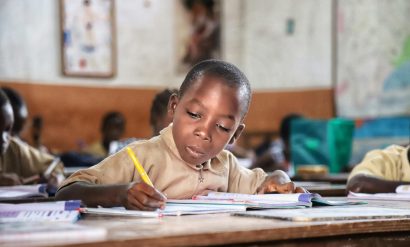
Creating Classrooms for Change: Developing cognitive flexibility in schools in Rwanda
This research looked at how schools in Rwanda foster students’ skills for adaptability - their capacity to create, innovate and adjust to shifting circumstances. It uses the psychological lens of cognitive flexibility.

Why and how do healthcare professionals use play in clinical practice?
We explored what healthcare professionals in different roles and different countries understood to be important and useful about the role of play in paediatric practice.
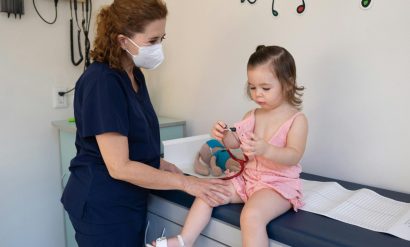
Do educational programmes for healthcare professionals focus on play?
This literature review looked at the evidence to understand how educational programmes for healthcare professionals include the use of play. It found that play is not consistently or systematically integrated into medical education.
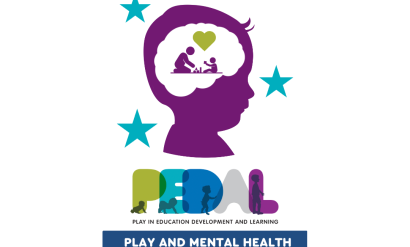
Supporting play for neurodivergent children
In this PEDAL Conference 2023 recording, we hear from Kerry Murphy (Goldsmiths, University of London) and Dr Gina Gomez de la Cuesta and Abi Dodson (Play Included) share their expertise on play and its significance in diverse child development.

The therapeutic powers of play: play therapy as a mental health treatment
In this PEDAL Conference 2023 recording, Siobhán Prendiville (Children's Therapy Centre in Ireland) talks about the therapeutic powers of play and highlights how well Play Therapy sits within a neurosequential approach to psychotherapy.

The complex possibilities of play in schools
In this PEDAL Conference 2023 recording, Dr James Biddulph and Aimee Durning (University of Cambridge Primary School) discuss play's place in the curriculum, and how they have used play to nurture and promote mental wellness for some of the most vulnerable children within their school community.

Prisons, hospitals and schools: challenges and opportunities introducing play in different settings
In this PEDAL Conference 2023 recording, Dr Paulina Pérez-Duarte (PEDAL), Dina Fajardo (PEDAL) & Mercedes Castañeda (Reinserta) explore and advocate for the use of play in challenging settings, as well as those opportunities where play can enable a powerful change in children’s mental health.

Public health campaigns: supporting infant mental health through encouraging playful interactions
In this PEDAL Conference 2023 recording, Margaret Gallagher (NSPCC) and Alex Spragg (Better Start Bradford) talk about how two public health campaigns supported infant mental health through encouraging playful interactions.

A future for the world’s children? Play as the basis of a new paradigm for a world on fire
In this PEDAL Conference 2023 keynote lecture, Professor Mark Tomlinson (Stellenbosch University) discusses the important role of play in building minds and brains in the future that are built for creativity, adaptation, collaboration, connectedness and resilience.

A vision for happy, healthy childhoods in the UK
In this PEDAL Conference 2023 keynote lecture, Helen Hayes (Shadow Children's Minister and Labour MP forDulwich & West Norwood) shares Labour's vision for childhood.

Understanding & supporting mental health in infancy & early childhood: a PEDAL and UNICEF UK toolkit
In this PEDAL Conference 2023 lecture, PEDAL's Senior Policy Fellow Sally Hogg presents PEDAL’s work with UNICEF UK on the new toolkit for understanding and supporting mental health in infancy and early childhood.
